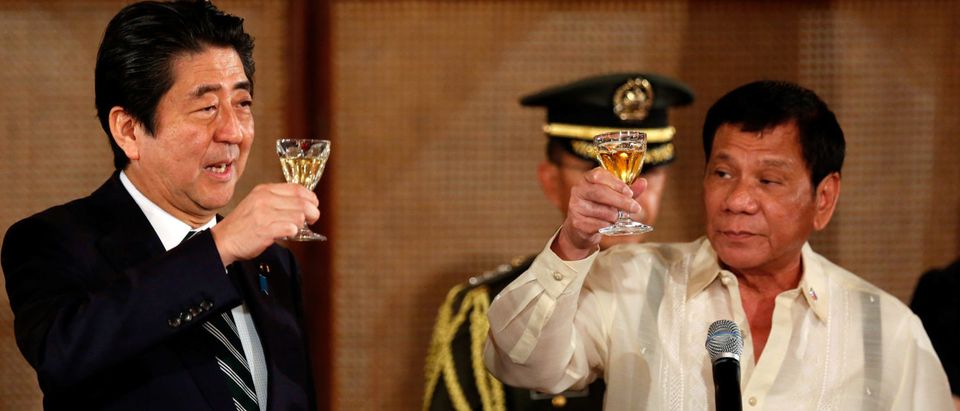Filipino President Rodrigo Duterte reportedly signed a bill Tuesday that will lead to higher penalties for citizens that commit a number of varying crimes, including publishing what the country’s government considers “fake news.”
The legislation, known as Republic Act 10951, adds amendments to the 87-year-old Revised Penal Code, according to a Thursday report from the Philippine Daily Inquirer. One of the statutes, Article 154, establishes stricter punishments for the “unlawful use of means of publication and unlwaful (sic) utterances.”
Specifically, the law applies to any person that publishes what the law deems as fraudulent or misleading news, or any person that divulges official documents before they are properly published because it “may endanger the public order, or cause damage to the interest or credit of the state.” It also specifies that “any person who by the same means, or word, utterances or speeches shall encourage disobedience to the law or to the constituted authorities or praise, justify, or extol any act punished by law,” according to The Inquirer.
Violators can be subjected to fines anywhere from 40,000 to 200,000 Philippine pesos (roughly $780 to $3,900 USD). Other potential penalties include incarceration for one month and one day to six months, The Inquirer reports. (RELATED: Man Sentenced To 35 Years In Thailand Jail For Allegedly Criticizing Royal Family On Facebook)
The country’s senate approved the bill with a vote of 21-0.
“The only remedy is to call for the much-needed overhaul of an archaic law that was promulgated decades ago when the political, socio-economic and cultural settings were very much different from today’s conditions,” Senate Minority Leader Franklin Drilon said, according to The Philippine Star, adding that the measure effectively updates “the value of the damages used in determining the extent of liability and imprisonment.” (RELATED: Pakistani Man Sentenced To Death For Facebook ‘Blasphemy’)
Duterte allegedly oversees an army of internet trolls tasked with creating and promulgating pro-Duterte propaganda. Opponents of the leader at the time wanted legislation against false news, but for ostensibly different reasons than Duterte. While Duterte’s crackdown on fake news is significant, it’s not nearly as pervasive and intense as his administration’s crackdown on illegal drugs. The law enforcement sweep has left the streets with bloodied bodies, many of them dead from the country’s zero-tolerance policy.
Entities in both Europe and the U.S. have been pressured to do something about fake news, just like the Philippines. Europe, both through individual countries and the larger governing body the European Union, seems to be taking a more aggressive stance than the U.S., but a less firm one than the Philippines.
All content created by the Daily Caller News Foundation, an independent and nonpartisan newswire service, is available without charge to any legitimate news publisher that can provide a large audience. All republished articles must include our logo, our reporter’s byline and their DCNF affiliation. For any questions about our guidelines or partnering with us, please contact licensing@dailycallernewsfoundation.org.












